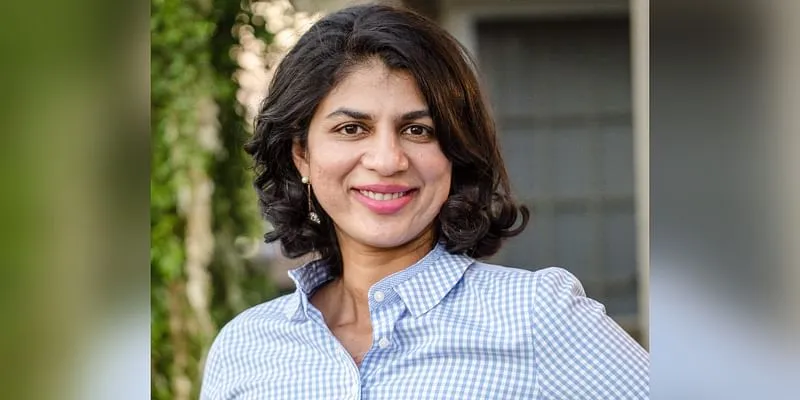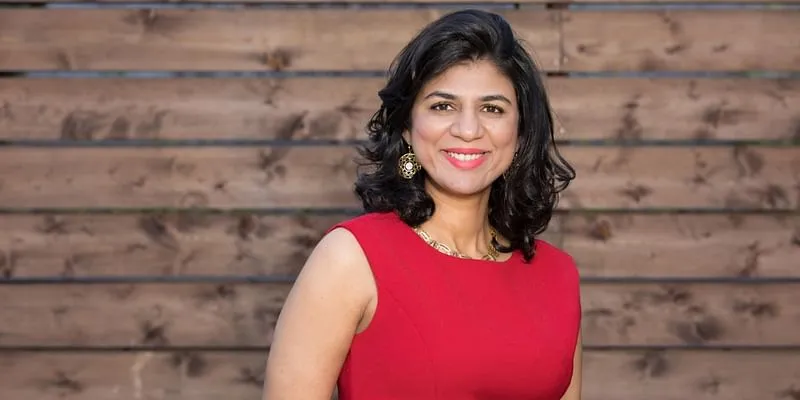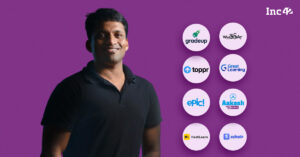The pandemic has turned the world around and has changed the way investors look at businesses and founders. However, Madhu Shalini Iyer, Partner at Rocketship.vc, believes that most of the changes are permanent but we still have a long way to go
Madhu has over 15 years of experience in investing and leading high-growth organisations, both in Silicon Valley and Asia. Well versed in data science, Madhu’s familiarity with emerging markets and developing economies has been accelerating Rocketship.vc investment strategy in India and the SEA regions.
Ever since her joining in 2020, Madhu has led the firm’s investments in San Francisco-based Crosschq and India’s KhataBook, and is actively involved in counselling the firm’s other portfolio companies.
She was earlier the Chief Data Officer at Gojek and helped grow the business into a unicorn. She was also on the company’s board and established the Singapore office. Before Gojek, Madhu was an operating partner at a $150 million private equity fund, building startups across South East Asia.
She was part of the founding team of Intuit’s lending platform QuickBooks, helping to grow the platform. She holds three patents in the areas of user data augmented algorithms for financial inclusion. In conversation with YS, Madhu Shalini Iyer speaks about what she looks for in startups and founders while investing in them.

Edited excerpts of the conversation:
YS (YS): What are the permanent and impermanent shifts you have seen post-COVID-19?
Madhu Shalini Iyer (MSI): I think technology and startup sectors have been strong even during COVID-19. We’ve seen tailwinds in some sectors, while others have had a negative impact. VC activity continued in 2020 in digital, health, education etc, where things were accelerated. Anything that enabled remote work and remote collaboration, peaked. We made some bullish investments in the space as well.
The dust is still settling; the vaccines are out and people are slowly started resuming their normal lives. From an operating perspective, I think that we are going to have a style of operation that will involve remote work in some aspects in some shape or form. Many people in the Valley are not going back to work.
The US is already seeing fundamental shifts, where people are moving closer to their hometowns, looking for houses with larger yards etc, and away from the city. I feel some of the people will return to the cities, but remote work is here to stay.
We’ve all become accustomed to different forms of consumption – food, content, education, health etc is going to be different. Infrastructure is being built, and people are investing in data. We are always going to be guided by what our algorithms tell us, and picking up companies that come out at the top considering our data and first principles. We are bullish, especially about India.
YS: How has it changed the way investors look at founders, companies, and business models? What levellers have shifted?
MSI: The pandemic has removed the hyperlocal element of investing and founder relationships. Investors have become comfortable with video meetings, and not meeting the entire team for due diligence. The local aspect has lost much of the charm with globalisation, and this is here to stay.
Startups in the growth stages are losing their sheen, with more people funding bigger and better startups. There is a lot of international focus on India now, especially from global investors. The ecosystem is growing and evolving, and the capital shift is taking place. From the perspective of a global fund, we are hearing that more people looking closely at global startup ecosystems.
We have always been a unique fund. We have been investing in founders using Zoom since 2014. We have invested in KhataBook, Apna, Locus, MadStreetDen, and a few other companies, and we have also invested in the companies without meeting the founders in person. And this holds true for countries across the world.
We dare to do that because we have built a large startup database, and there are data and computer scientists who have built algorithms that can pick companies in the right way, and we have never been taken by surprise. We have only been wowed, so far.

YS: What do you look for in the founders when you talk to them?
MSI: Having said that, we look for founders who have clarity of thought. When someone is clear about the vision, knows what they want to build, and has an unsurpassed determination, it comes through. I also value someone who is keenly aware of the environment they are operating in and is more action-oriented, proactive, and product-focused.
Once you have this, you build things thoughtfully by keeping the end consumer in mind. While all of our investments stand out, I have been impressed by the clarity of thought of the founder of Apna. When they met me, I realised that the team, their vision, and their focus on the product and the growth, and how they would build it was clear.
He also was focused on how the consumer would grow and the use they had of the product. This, in turn, has led to tremendous growth in the company. Success follows such companies. Another such example is Ravish Naresh of KhataBook.
YS: How much of the founder’s past experience and background is favourable or unfavourable to their new venture?
MSI: For us at Rocketship VC, the data has helped a lot to gain this perspective. We don’t completely rely on our gut, but also on a data model. However, there is a qualitative matrix when you are investing. I think that no past should be judged beyond what you learn from it because it depends on what the founder is building right now.
All of these are extremely individualistic. Sometimes, if you are building something that requires a particular skill and have failed in it, and you are again building something that requires that muscle, then people will be worried. Then you should probe for what has changed, and the idea needs to big and interesting enough.
Also, it is important to understand what didn’t work the last time, and what have you learnt from it.
YS: What advice would you give founders?
MSI: Some people are carried away by what they are building and lose their confidence. They lose a bit of perspective. When you lose focus, it becomes evident in conversations. And as a founder, while you have to be hyper-focused, you also need to see things from a higher perspective.
It is a unique combination of having a laser focus and also being visionary, being the most detail-oriented person and one viewed from the broad spectrum in the room. This is a difficult path to traverse. That is why many investors look for a founding team that is complimentary.
When you are seeking investment, you have to dilute more, and you need to make the right choices and see through everything closely.
It is one of the best eras; the change is global. Pockets are opening up all over the world, and India is in a great place in time, and I am bullish when it comes to India. It is important to find great co-founders and follow an idea you believe in. Stay the course, be confident, and don’t let the noise drown your inner voice out.

![You are currently viewing [YS Learn] What Rocketship.vc Partner Madhu Shalini Iyer looks for in startups and founders](https://blog.digitalsevaa.com/wp-content/uploads/2021/03/Imagefif4-1615223692886.jpg)


![Read more about the article [Funding alert] Superfood startup Prolgae raises $200K in a seed investment round](https://blog.digitalsevaa.com/wp-content/uploads/2021/09/Imagefgnp-1598354306319-300x150.jpg)





